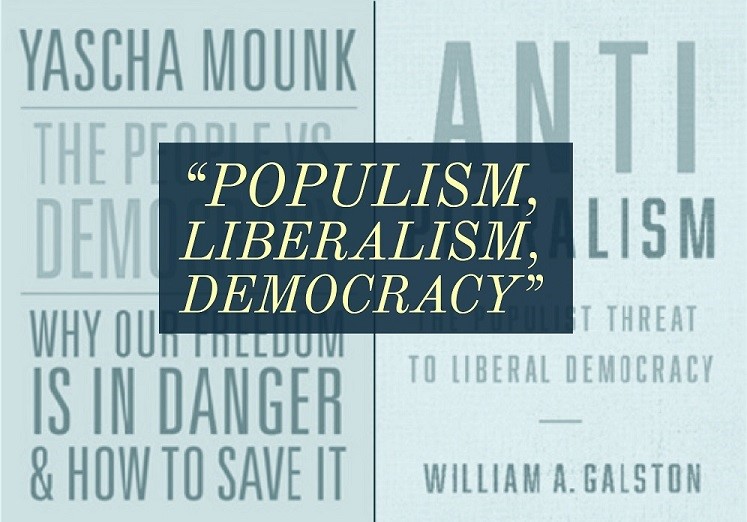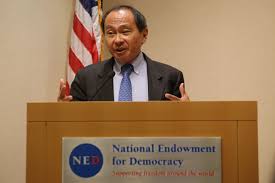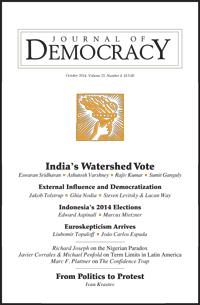
National Endowment for Democracy
Prime Minister Boris Johnson’s victory fills analyst Max Boot with fear and foreboding. It’s not just because his reelection makes it certain that Brexit — a plan that will further fracture the West at a time when we should be uniting against common foes such as China and Russia — will now be enacted. The larger issue is that populist nationalism is on the march on both sides of the Atlantic, and no one seems to know how to stop it, he writes for The Washington Post.
 Liberal democracy is being challenged by populist nationalist leaders fanning the flames of identity politics, says Stanford’s Francis Fukuyama. Instead of uniting over a shared sense of humanity, people are identifying in narrower ways based on things like religion, race, ethnicity, and gender, says National Endowment for Democracy (NED) board member Fukuyama. In order to support democracy, we must inculcate a greater sense of dignity into society, he tells Elliot Gerson, executive vice president at the Aspen Institute.
Liberal democracy is being challenged by populist nationalist leaders fanning the flames of identity politics, says Stanford’s Francis Fukuyama. Instead of uniting over a shared sense of humanity, people are identifying in narrower ways based on things like religion, race, ethnicity, and gender, says National Endowment for Democracy (NED) board member Fukuyama. In order to support democracy, we must inculcate a greater sense of dignity into society, he tells Elliot Gerson, executive vice president at the Aspen Institute.
On the subject of populist nationalists fanning the flames of identity politics…
 In India, the world’s largest democracy, the ruling party passed an unprecedented citizenship bill that privileges certain religions over others, namely Islam, a move that has been widely criticized by human rights groups and described by one Indian intellectual as “a giant step to officially convert a constitutional democracy into a[n] unconstitutional ethnocracy,” the Post’s Fareed Zakaria writes:
In India, the world’s largest democracy, the ruling party passed an unprecedented citizenship bill that privileges certain religions over others, namely Islam, a move that has been widely criticized by human rights groups and described by one Indian intellectual as “a giant step to officially convert a constitutional democracy into a[n] unconstitutional ethnocracy,” the Post’s Fareed Zakaria writes:
If you broaden the lens, we are living through what Stanford University’s Larry Diamond has called a “democratic recession.” Except it might be turning into a depression. For 13 consecutive years, the international human rights watchdog group Freedom House has registered a decline in global freedom — fair elections, free press, individual and minority rights, etc.
Billionaires are feeling the populist backlash at a time when the middle classes, and not only factory workers and administrative staff, feel they are losing out due to technological change and globalization, The Financial Times adds:
The OECD says the average income of the richest 10 per cent of the population in member countries is about nine times that of the poorest 10 per cent, up from seven times 25 years ago. “The economic crisis [the 2008 crash and its aftermath] has added urgency to the need to address inequality,” says the organisation, even though economists still argue over the causes of inequality and how much it has increased in recent decades. Matthew Fleming, a partner at Stonehage Fleming, a UK wealth adviser, warns that the rich risk losing the argument, even if they give away their money through philanthropy.
He says: “The real issue for the wealth sector is the public perception of wealth. The perception of inequality. The reality of inequality. There is nobody beating the drum [loudly enough] for socially responsible capitalism.”







